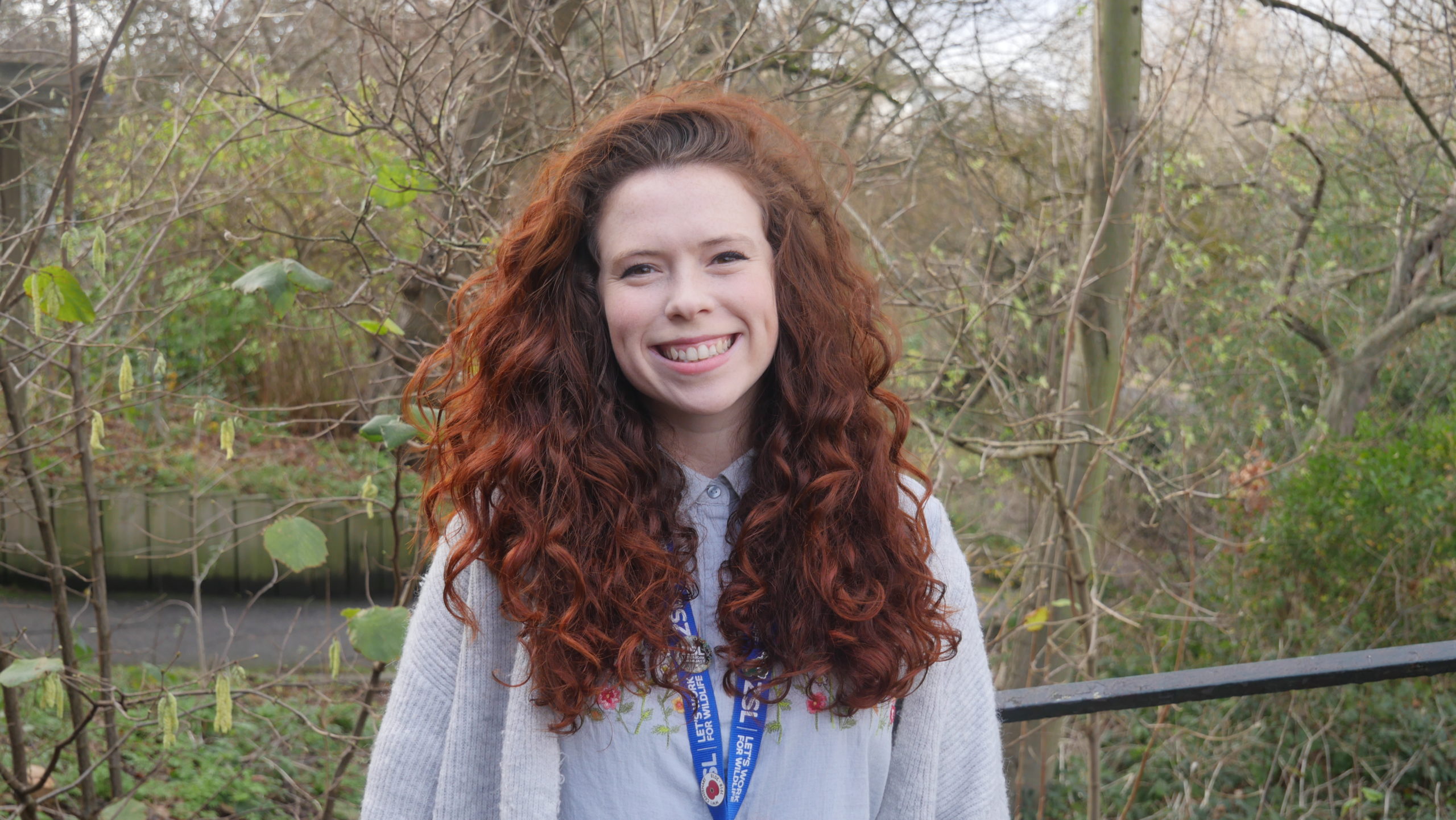Today, for World Oyster Day, we meet Celine Gamble, MSc Biodiversity and Conservation (2017) and BSc Zoology (2015) graduate, now working as a Project Manager at the Zoological Society of London (ZSL).
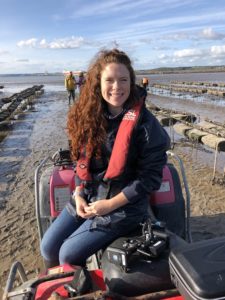
Hi Celine! Why don’t you tell us a bit about what you are up to now?
I am a Project Manager in the Conservation and Policy department at ZSL and Visiting Researcher at the University of Portsmouth’s Institute of Marine Sciences. I work within the ZSL Estuaries and Wetlands team, which has a varied programme of marine conservation projects, including marine habitat restoration and monitoring of marine species, such as sharks and seals, in the River Thames and outer Thames Estuaries.
During my current role I manage a new project, Wild Oysters, and a Network of restoration practitioners around the UK & Ireland. I work closely with a range of stakeholders including NGO’s, academics, oystermen, government agencies and community groups. My role is very varied, including a mix of physical restoration, science communication, networking, and scientific research.
Find out more about the ZSL Marine and Freshwater Conservation projects here.
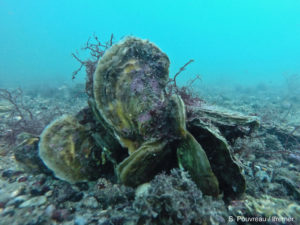
In celebration of World Oyster Day, it would be great to understand more about native oysters and why we need to restore them?
The European native oyster (Ostrea edulis) is the only true oyster species that is native to our UK coastlines. Native oysters once formed vast reefs along the coastlines of Europe, forming a dominant ecological feature of our coastal marine habitat.
Despite being relatively small in size (5-11cm), oysters are capable of making some big changes in our marine environment! For that reason, I like to think of them as little superheroes of the sea. A single oyster can filter ~200 litres of seawater per day, which can improve both water quality and clarity. The unique three-dimensional habitats created by oysters support a higher biodiversity of species than the surrounding seabed. Oyster reefs can also increase fish production, by providing a protective nursery ground for juveniles.
Native oyster reefs are now among the most threatened marine habitats in Europe. In the UK and Ireland populations have declined by 95%, as a result of historic overfishing, pollution, and disease. You can still see some remnant populations in the south east of England, west coast of Scotland and the south coast of Ireland. Due to the vast decline of the species, native oysters need active restoration method in order to prevent the species from becoming functionally extinct.
Please could you tell us a little more about what ZSL doing towards Oyster restoration?
Today on World Oyster Day we are very excited to be launching an exciting new marine habitat restoration project in the UK. ZSL along with partners, Blue Marine Foundation and British Marine, we have been awarded £1.18m to deliver the Wild Oysters project.
Wild Oysters is aiming to recover native oyster populations in the UK, and in turn bring back the ecosystem services they provide. Bringing conservation and industry together we will make a space for nature within marina sites. By installing oyster nurseries suspended underneath marina pontoons, we will release the next generation of oyster larvae to the seabed. The oyster larvae will then settle across three new oyster reefs created in British estuaries. In addition, the oyster nurseries will provide us with a “unique window into the ocean” acting as an engagement and education tool.
ZSL are co-founders of the Native Oyster Network, along with the University of Portsmouth, aiming to facilitate the ecologically coherent and collaborative approach to native oyster restoration in the UK & Ireland. ZSL also chair the Essex Native Oyster Restoration Initiative (ENORI), a collaboration between oystermen, government, conservationists and academia. Working towards the Essex estuaries having self-sustaining populations of native oysters, increased biodiversity and sustainable fisheries whilst recognising their cultural importance.
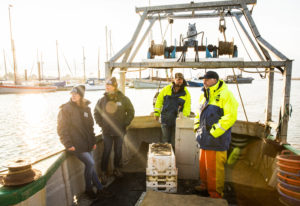
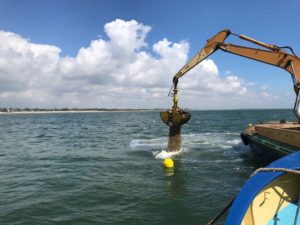
How did your studies at the University of Exeter shape where you work today?
I have developed a focused interest in the restoration of unique marine habitats around the UK. Many of these habitats such as seagrass beds, kelp forests, saltmarshes, and oyster reefs, are often overlooked. I developed a passion for both science communication and marine conservation whilst working and studying at the University of Exeter. My interests and skillset have been developed throughout my degrees, from carrying out UK based marine fieldwork, learning to dive in Cornwall and the extracurricular opportunities available at the university.
During my master’s I had an introduction to many different marine NGO’s and researchers via the Marine Biodiversity and Conservation module. I met Dr Heather Koldewey, who at the time was the Head of ZSL Marine and Freshwater, through this module. I later approached her to be my MSc thesis supervisor, which meant that I learnt a lot more about her research and the wider work of her team.
Any advice for anyone looking to pursue a career in marine conservation?
Reaching out to contacts that you have built throughout your degree, including fellow classmates and recent alumni, is a great place to start. Having a casual chat with someone who is working at an organisation you are keen to work for in the future, provides you with that initial step in the door. I also find that social media and online networking tools work very well for building your knowledge of the types of marine conservation organisations out there. I followed the ZSL Marine and Freshwater social media pages throughout my university degrees, which helped my understanding of the scope of work delivered by the team. This information later became very useful when applying for jobs that came up within the organisation.
Finally, I would say do not let an unsuccessful interview (or a few) put you off applying to the same organisation again if another job comes up. I was offered my first position at ZSL after applying to a few different roles and my third interview attempt.

Thanks Celine!
You can keep up to date with Celine on Twitter (@CelineGamble) and Instagram (@celineg_marine)

